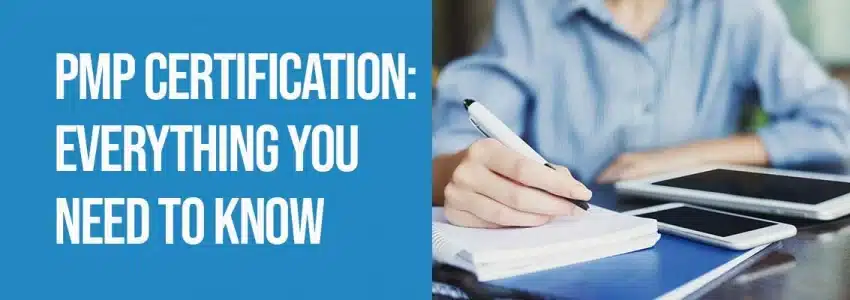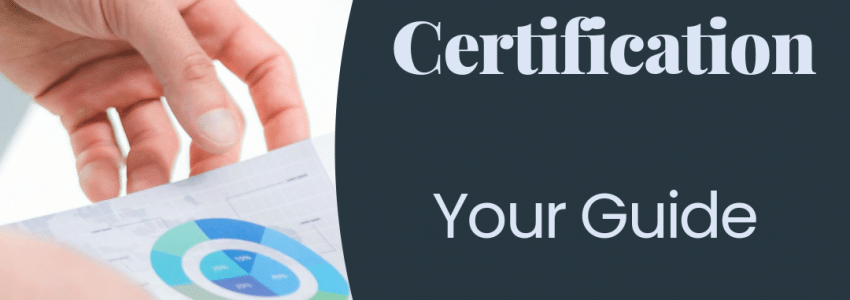Introduction
PMP certification has become increasingly important for a successful project management career. It is recognized as a leading credential for project managers, validating the ability to speak and understand the global language of project management. It also connects project managers to a worldwide community of professionals, organizations, and experts. A PMP certification is more than a credential; it’s a testament to a professional’s dedication, expertise, and commitment to project management.
It is also a powerful tool for propelling you to new heights, enhancing career prospects, achieving a higher salary potential, and increasing recognition and credibility.
This log takes a deep dive into this prestigious credential, with information on what it is, how to qualify, and recent updates, and the exam structure.
What is the PMP Certification
Project Management Professional (PMP), administered by the project management body known as PMI (or the Project Management Institute), recognizes an individual’s ability to lead and manage every project plan efficiently, on time, and within scope and budget.
However, PMP certification goes beyond project management. It looks at risk management, stakeholder communication, portfolio management, and resource allocation, which are pivotal in navigating the complex landscape of any project.
Global Reach of PMP
The PMP certification is a globally acknowledged mark of excellence. It signifies that the holder adheres to an internationally recognized expertise, ethics, and professionalism standard. This universal recognition opens doors to opportunities worldwide, making PMP-certified professionals highly sought after by multinational corporations, government agencies, and nonprofits alike.
This reach also means that it transcends industries. Whether in IT solutions and services, construction projects, healthcare, or finance, a PMP-certified manager is equipped with the versatility to adapt and excel in various environments. This adaptability and global recognition have made PMP certification a desired asset in any project manager’s professional portfolio.
Qualifying for the PMP
To qualify for PMP certification, you must meet specific requirements based on your level of education.
PMI places applicants into two main educational backgrounds:
For those with a four-year degree (bachelor’s degree or global equivalent): You must have at least 36 months (three years) of unique, non-overlapping professional project management experience.
For those with a secondary degree (high school diploma, associate’s degree, or global equivalent): The experience requirement increases to 60 months (five years) of professional project management experience.
Let’s take a closer look at the PMP requirements.
Project Management Experience Requirements
Project management experience is a cornerstone of PMP certification eligibility. PMI ensures that candidates have substantial hands-on experience leading and directing projects. You must document your experience with the number of hours spent leading and directing tasks and the months of project management experience. The experience should not overlap. You must have also accrued it within the last eight consecutive years before your application submission.
Professional Training Requirements
In addition to educational qualifications and experience, professional training in project management is a mandatory prerequisite. This training can be fulfilled by completing 35 contact hours of formal project management education. These hours can be accrued through various modes, including:
- PMI Registered Education Providers (R.E.P.s)
- PMI chapter courses
- Employer-/company-sponsored programs
- Training companies or consultants
- Distance-learning companies, including an end-of-course assessment
- Academic education through programs accredited by the PMI Global Accreditation Center (GAC)
The training covers various topics crucial to project management, such as project initiation, planning, execution, monitoring, controlling, and closing. This requirement aims to ensure that all PMP candidates have a baseline understanding of standard project management processes and principles.
Additional Considerations
Maintaining accurate records of your project management experience and education is essential. PMI may ask you to provide supporting documents as part of the application audit process. Also, staying updated with PMI’s latest guidelines is crucial, as the institute periodically updates its certification requirements to align with the evolving field of project management.
The PMP Exam
Obtaining your credentials requires passing the PMP certification exam, a rigorous test that evaluates an individual’s ability and understanding of project management. The PMI periodically updates the exam to ensure it remains relevant and reflective of the latest practices.
The most recent update in 2023 marked a major shift in the exam’s structure and content, aiming to better prepare project managers for the complexities of the modern business environment. This update included the transition from the PMBOK Guide 6th edition to the 7th edition as one of the primary reference materials for the exam. While the PMBOK 7th Ed continues to be one of the references for the PMP Exam, there are other exam sources, including the Process Group Practice Guide and the Agile Practice Guide.
The PMP Exam Content Outline, essentially the syllabus for the exam, was also revised in January 2021. Here are a few of the most significant changes:
New Domains and Content Outline
The updated PMP exam introduces a new content outline that focuses on three critical domains:
- People: This domain emphasizes the skills required to effectively lead a project team in today’s diverse and dynamic work environment. It covers aspects like team building, conflict resolution, and stakeholder engagement.
- Process: Reflecting the core technical aspects of project management, this domain focuses on the methodologies and activities necessary to successfully manage a project through its lifecycle, from initiation to closing.
- Business Environment: This domain highlights the connection between projects and organizational strategy. It includes topics like compliance, organizational governance, and aligning project goals with business needs.
This new structure aligns the exam more closely with the actual roles and responsibilities of a project manager, ensuring that PMP certification holders are well-equipped to meet the demands of their profession.
Emphasis on Agile and Hybrid Methodologies
One of the most significant aspects of the recent update is the increased emphasis on agile and hybrid methodologies. As organizations continue to adopt more flexible and agile project management methodologies, it’s become essential for project managers to be proficient in these areas. The updated exam reflects this reality, testing candidates on their understanding and application of agile and hybrid approaches in various project scenarios.
This shift acknowledges the growing trend of blending traditional practices with agile principles to create a more responsive and iterative approach to managing projects. It highlights the importance of versatility in a project manager’s skill set, ensuring they can adapt to a range of project environments and methodologies.
Key Topics Covered on the Exam
The exam covers many topics, reflecting the diverse skill set required for successful project management. These include:
- Integration Management: How to unify all processes and activities to achieve project goals.
- Scope Management: Ensuring the project includes all the work required, and only the work required, to complete the project successfully.
- Schedule and Cost Management: Planning and controlling the project’s schedule and budget.
- Quality Management: Determining quality policies, objectives, and responsibilities so the project will satisfy the needs for which it was undertaken.
- Resource Management: Identifying, acquiring, and managing the resources needed for successful project completion.
- Communications Management: Ensuring timely and appropriate planning, collection, creation, distribution, storage, retrieval, management, control, monitoring, and the ultimate disposition of project information.
- Risk Management: Conducting risk management planning, identification, analysis, response planning, and controlling risk on a project.
- Procurement Management: Procuring products, services, or results needed from outside the project team.
- Stakeholder Management: Identifying the people, groups, or organizations that could impact or be impacted by the project, analyzing stakeholder expectations, and developing appropriate management strategies for effectively engaging stakeholders in project decisions and execution.
Types of PMP Exam Questions
The PMP exam format changes from time to time but currently consists of 180 scenario-based, drag-and-drop multiple-choice questions with graphical representations. These questions are designed not only to test your theoretical knowledge but also to assess your practical understanding and ability to apply core principles in real-life scenarios.
Exam Duration and Location Options
The PMP exam is a 230-minute test, which includes two breaks. This duration is specifically designed to provide ample time for you to demonstrate your project management knowledge and skills comprehensively.
As for location options, the PMP exam can be taken at a PMI-approved test center or through an online proctored format, which allows you to take the exam from the comfort of your home or office. This flexibility ensures that you can choose an option that best suits your personal and professional circumstances.
PMP Exam Fees
The cost of the PMP exam varies depending on your PMI membership status. Currently, the cost is:
- For PMI Members: $405 USD
- For Non-members: $575 USD
If Don’t Pass the PMP Exam
If you don’t pass the PMP exam on your first attempt, don’t lose heart. PMI allows you to take the exam up to three times within one year from your eligibility period. Each retake attempt will require an additional fee.
Maintaining PMP Certification
The path doesn’t end with the certification exam; it’s just a beginning – a gateway to continuous learning and professional development. Here’s what you need to know about maintaining your certification, embracing continuous education, and, if necessary, bouncing back stronger if things don’t go as planned.
What are PMI Professional Development Units (PDUs)?
Once you’ve earned your PMP certification, maintaining it involves earning 60 PDUs every three years. PDUs are the measuring units used by PMI to quantify approved learning and professional service activities. They are divided into two categories:
- Education PDUs: At least 35 of your PDUs must be from educational activities. These could range from attending webinars, workshops, or conferences to taking courses relevant to project management.
- Giving Back PDUs: Up to 25 PDUs can be earned through professional services, like volunteering, creating content, or giving relevant presentations.
Continuing Education and Growth: Project management is constantly evolving, and so should your skills. Engaging in ongoing education not only helps you maintain your certification but also keeps you abreast of the latest trends, tools, and methodologies in the field.
Embracing the PMP Journey with PassionIT Group
Earning your PMP certification is a significant achievement and a testament to your dedication, and PassionIT Group can help you along the way. As an Authorized Training Partner, our PMP Exam Prep Boot Camp offers you the essential preparation needed to pass either the PMP or CAPM certification. Whether you are interested in public, instructor-led training or custom and private classes for your organization, PassionIT group has training for you. Contact us to learn more today.





